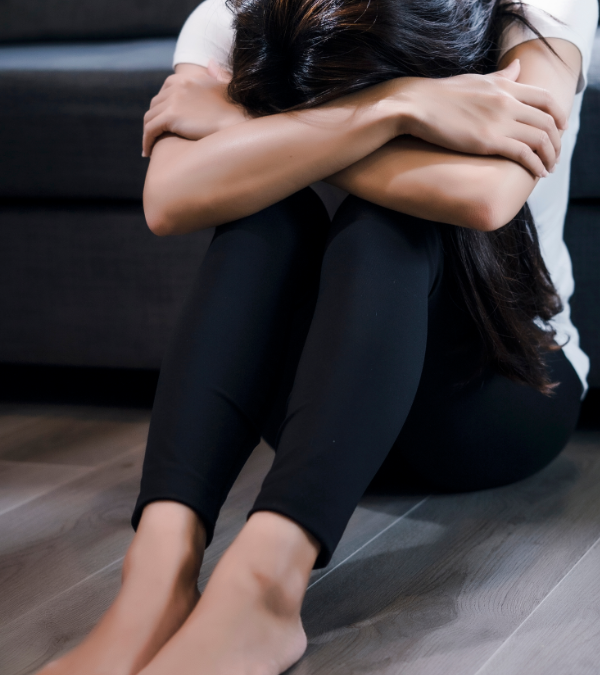Types of Anxiety Symptoms and Anxiety Coping Skills

Anxiety
What is Anxiety
Anxiety is a common experience for many people, characterized by feelings of worry, fear, or apprehension about future events or situations. It can manifest in various symptoms, both physical and emotional, and can significantly impact daily life if not managed effectively. Coping skills for anxiety vary widely and can include lifestyle changes, therapeutic techniques, and self-care practices. Here, we’ll explore anxiety symptoms, its impact, and a comprehensive range of coping strategies.
Understanding Anxiety Symptoms
Anxiety symptoms can be categorized into physical, emotional, cognitive, and behavioral manifestations. These symptoms can vary in intensity and duration, depending on the individual and the triggering factors.
Physical Anxiety Symptoms:
– Increased heart rate: Feeling like your heart is racing or pounding.
– Muscle tension: Often felt in the neck, shoulders, or jaw.
– Sweating: Even when not physically active or in a warm environment.
– Trembling or shaking: Hands, voice, or legs may tremble involuntarily.
– Shortness of breath: Feeling like you can’t get enough air.
– Dizziness or lightheadedness: Feeling faint or unsteady.
– Stomach discomfort: Nausea, diarrhea, or other gastrointestinal issues.
– Fatigue: Feeling tired or run-down despite adequate rest.
Emotional Anxiety Symptoms:
– Excessive worry: Constantly thinking about worst-case scenarios.
– Feeling tense or on edge: Being easily startled or feeling restless.
– Irritability: Being easily annoyed or agitated.
– Difficulty concentrating: Trouble focusing on tasks or making decisions.
– Trouble sleeping: Difficulty falling asleep or staying asleep.
– Feeling overwhelmed: Sensation of being unable to cope with daily stressors.
Cognitive Anxiety Symptoms:
– Racing thoughts: Difficulty quieting the mind or calming intrusive thoughts.
– Catastrophizing: Expecting the worst possible outcome in any situation.
– Overthinking: Dwelling on minor issues or events excessively.
– Mind blanking: Difficulty recalling information or finding words.
– Intrusive thoughts: Unwanted thoughts or images that cause distress.
Behavioral Anxiety Symptoms:
– Avoidance: Steering clear of situations or places that trigger anxiety.
– Procrastination: Putting off tasks due to fear of failure or anxiety.
– Compulsive behaviors: Repeated actions to reduce anxiety (e.g., checking locks).
– Restlessness: Finding it hard to sit still or relax.
– Seeking reassurance: Constantly seeking validation or reassurance from others.
Impact of Anxiety
The impact of anxiety can be profound and affect various aspects of life, including:
– Work or School Performance: Difficulty concentrating, attending, or completing tasks.
– Relationships: Strained interpersonal interactions due to irritability or avoidance.
– Physical Health: Increased risk of cardiovascular issues, digestive problems, or chronic pain.
– Mental Health: Heightened risk of depression, substance abuse, or other mental health disorders.
– Quality of Life: Reduced enjoyment of activities, hobbies, or social events.
Understanding the symptoms and impact of anxiety is crucial in developing effective coping strategies.
Coping Skills for Anxiety
Coping skills for anxiety aim to manage symptoms, reduce stress, and improve overall well-being. These strategies can be broadly categorized into lifestyle adjustments, therapeutic techniques, and self-care practices.
Lifestyle Adjustments
1. Regular Exercise: Physical activity can reduce stress hormones and increase endorphins, improving mood and overall well-being.
2. Healthy Diet: Eating nutritious meals and avoiding excessive caffeine or sugar can stabilize energy levels and mood.
3. Adequate Sleep: Establishing a consistent sleep routine and ensuring sufficient rest can improve resilience to stress.
4. Limiting Substance Use: Avoiding or moderating alcohol and nicotine intake, as they can worsen anxiety symptoms.
5. Time Management: Organizing tasks and setting realistic goals can reduce feelings of overwhelm and promote a sense of control.
Therapeutic Techniques
1. Cognitive Behavioral Therapy (CBT): CBT helps identify and challenge negative thought patterns and behaviors contributing to anxiety.
2. Mindfulness and Meditation: Practices such as mindfulness meditation or deep breathing exercises can promote relaxation and reduce anxiety.
3. Progressive Muscle Relaxation (PMR): PMR involves tensing and then relaxing muscle groups to reduce physical tension and promote calmness.
4. Exposure Therapy: Gradual exposure to feared situations or objects can help reduce anxiety over time.
5. Biofeedback: Techniques to monitor and control physiological responses, such as heart rate variability, can aid in anxiety management.
Self-Care Practices
1. Stress Management: Engaging in hobbies, leisure activities, or creative outlets can provide a distraction from anxiety.
2. Social Support: Connecting with supportive friends, family, or peers can provide emotional validation and reduce feelings of isolation.
3. Relaxation Techniques: Taking breaks, practicing yoga, or using aromatherapy can promote relaxation and reduce stress levels.
4. Journaling: Writing about feelings, experiences, or gratitude can help process emotions and gain perspective.
5. Setting Boundaries: Learning to say no and prioritize self-care can prevent burnout and reduce anxiety triggers.
Implementing Coping Skills
Effective coping with anxiety involves experimentation and customization of strategies to suit individual preferences and needs. Here are steps to implement coping skills effectively:
1. Identify Triggers: Recognize situations, thoughts, or behaviors that contribute to anxiety.
2. Choose Appropriate Techniques: Select coping skills that address specific symptoms or triggers.
3. Practice Consistently: Regular practice enhances effectiveness, whether it’s daily mindfulness sessions or weekly exercise routines.
4. Seek Professional Support: Consult therapists, counselors, or healthcare providers for personalized guidance and support.
5. Monitor Progress: Track improvements in symptom management and adjust coping strategies as needed.
Conclusion
In conclusion, understanding anxiety symptoms and coping skills is essential for managing this common mental health issue effectively. By recognizing the diverse manifestations of anxiety and implementing a comprehensive range of coping strategies—from lifestyle adjustments to therapeutic techniques and self-care practices—individuals can alleviate symptoms, reduce stress, and improve overall well-being. Consistency, patience, and a willingness to explore different approaches are key to finding what works best for each person in managing anxiety.

